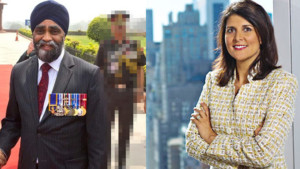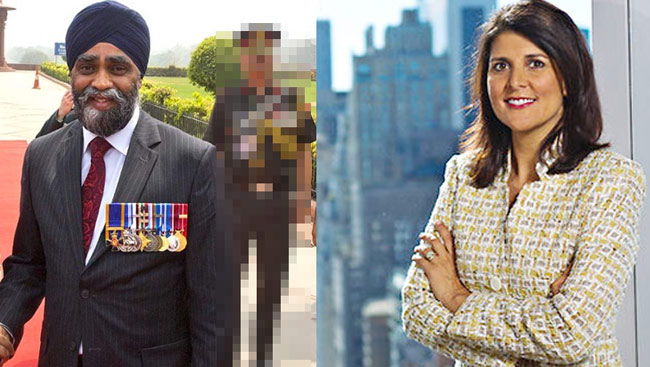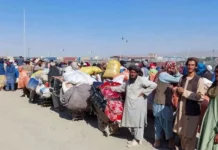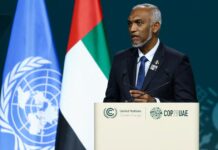 UNITED NATIONS: At a high-level UN Security Council meeting on peacekeeping operations, the world’s superpower – the US – and Canada were represented by their top cabinet-level officials, both of whom are of Indian-descent and belonging to the Sikh faith, signaling the rise of Indian-origin persons in geo-political leadership positions across the world.
UNITED NATIONS: At a high-level UN Security Council meeting on peacekeeping operations, the world’s superpower – the US – and Canada were represented by their top cabinet-level officials, both of whom are of Indian-descent and belonging to the Sikh faith, signaling the rise of Indian-origin persons in geo-political leadership positions across the world.
US Permanent Representative to the United Nations Nikki Haley and Canada’s Minister for National Defense Harjit Singh Sajjan came together to address the Security Council in an open debate on improving the Organization’s flagship enterprise – UN peacekeeping.
Haley, born as Nimrata Randhawa in South Carolina, is the daughter of Indian immigrants from Punjab. Her parents Ajit Singh Randhawa and Raj Kaur Randhawa emigrated from Amritsar in Punjab, India. Haley had served as the Governor of South Carolina. She became the first Indian-American to serve in a presidential administration at a Cabinet level position when she was confirmed to be inducted in President Donald Trump’s Cabinet.
Sajjan was born in a village in the Hoshiarpur district of Punjab, India and had emigrated to Canada in 1976, when he was five years old. He was sworn in as Canada’s defense minister in the government of Justin Trudeau in 2015.
Addressing the Council, Haley called for shared responsibility and shared costs for peacekeeping among Member States. She said the United States has long been the largest financial contributor to UN peacekeeping by far but added that peacekeeping is a shared responsibility. She announced that going forward, the US will not pay more than 25 per cent of the peacekeeping budget.
With shared responsibility comes shared burdens and shared costs. One country should not shoulder more than one quarter of the UN peacekeeping budget, and we look forward to a more equitable distribution of the budget among Member States. Moving forward, the United States will not pay more than 25 percent of the peacekeeping budget, she said, adding that this is a cap required by US law.
All of us have a role to play, and all of us must step up, she said.
Speaking on behalf of the Group of Friends of Women, Peace and Security, another diplomat Sajjan called for redoubled efforts and more creative thinking to increase the number of women in peacekeeping.
He said more must be done to mainstream gender considerations into peacekeeping, including the deployment of gender advisers and women protection advisers.
Speaking in his national capacity, he said the United Nations had repeatedly failed to reach targets for the deployment of women. The time for change is now and we must be bold, he said, drawing attention to a Canadian initiative aimed at overcoming barriers to women’s participation.
Noting that Canada chaired the Working Group of the Special Committee on Peacekeeping Operations, he said that body had tied the voices of troop – and police – contributing countries to efforts to improve the way peacekeeping was delivered. PTI







